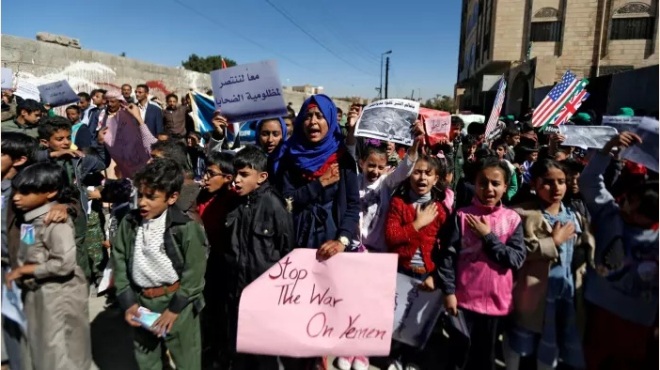
Monday November 27, 2017

Famine has killed at least 105m people since 1870, according to research conducted by the World Peace Foundation.
The vast majority were victims of political decisions and acts of war rather than drought. But by the turn of the millennium such man-made disaster had diminished to the extent that experts in the field, such as the UK academic and writer Alex de Waal, felt mass starvation might be a thing of the past.
This year that progress has dramatically reversed. The renewed use of starvation as a weapon of war is threatening millions of lives in Nigeria, South Sudan, Somalia and Yemen. The situation in Yemen is the most catastrophic.
The conflict there descended into a new circle of hell after Saudi Arabia committed its air force to defeating Houthi rebels in March 2015. In the process, roads, bridges and markets have been destroyed, the container docks at the port of al-Hudaida were bombed, and other infrastructure ruined. At Riyadh’s insistence and with the backing of Britain and the US, the UN Security Council imposed a blockade on the country.
Its purpose is to prevent weapons reaching the rebels and in theory food is exempted. In practice, laborious inspection procedures mean food is reaching hungry mouths fatally slowly. And that was before a recent decision by Saudi Arabia to block humanitarian aid in retaliation for a missile fired at Riyadh earlier this month.
The consequences are terrifying. The UN says two-thirds of Yemen’s 28m population face shortages of food and clean water. A staggering 7m are now on the brink of famine. A cholera epidemic is raging. The war itself has claimed an estimated 10,000 people. But as was the case in most of the worst 20th-century conflicts, starvation is certain to be a greater killer. Mark Lowcock, the UN undersecretary-general for humanitarian affairs, last week said the continued closure of borders to aid shipments would threaten “the largest famine the world has seen for many decades”. The blockade, which Saudi Arabia appears to have partially lifted at the weekend, is tantamount to a war crime. And Riyadh’s allies should be wary of complicity.
Before he was forced to resign last month over allegations of sexual harassment, Sir Michael Fallon, then the UK’s defence secretary, begged MPs to cease all criticism of the kingdom.
This risked jeopardising BAE Systems’ £4bn deal to sell the kingdom fighter jets, he said. Sir Michael showed similar blindness about what is morally acceptable in his public evidence to the defence committee. He is gone. But sadly, his posture reflected that of a government which in its dealings with Saudi Arabia treats human rights as little more than a commercial inconvenience.
Donald Trump’s administration has been more craven still in encouraging Saudi Arabian over-reach. Washington’s silence over the tragedy unfolding in Yemen is as deafening as it is strategically misguided.
The intervention in Yemen was supposed to mark the arrival of a more assertive Saudi Arabia, rallying Sunni and other allies to counter Iranian, and Shia, influence. Instead, Saudi forces have proved as ineffectual as they are brutish. Even before Iran was actively involved, Riyadh was unable to defeat the rag-tag rebels. There is little sign they are any closer now.
There is also little doubt that without a change of heart in Riyadh, Yemenis will starve on a scale the 21st century has yet to see. In such circumstances, the US and Britain would be found guilty of complicity in crimes committed in the name of Saudi hubris.